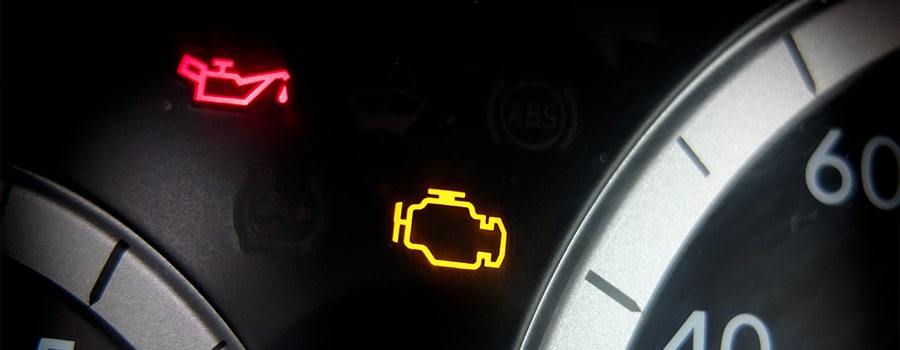Does Your Vehicle Qualify as a Lemon?
Our Team Will Help You Determine Your Options
What Qualifies a Car as a Lemon?
If you’ve ever bought a car, you know how exciting driving off the lot in a shiny, new vehicle can be. However, what happens when that dream car turns out to be a lemon? It’s a situation no one wants to find themselves in. That’s why it’s important to understand what qualifies a car as a lemon and what steps you can take if you find yourself in this unfortunate situation.
Our California lemon law lawyers at Norman Taylor & Associates can help save you any guesswork. Learn more below!
What Is a Lemon Car?
In the world of automobiles, a lemon refers to a vehicle with significant defects or issues that affect its value, use, or safety. These defects must be covered by the manufacturer’s warranty and must still persist after a reasonable number of repair attempts. Lemon laws exist to protect consumers from being stuck with faulty vehicles.
Reasonable Number of Repair Attempts
The concept of a reasonable number of repair attempts depends on the specific circumstances and the state you’re in. In California, for example, the law doesn’t provide an exact definition of “reasonable,” but it does offer guidelines.
Generally, if the manufacturer is unable to fix the car after at least four repair attempts to the same defect, or at least two repair attempts for a serious safety defect, or if the vehicle has been out of service for more than 30 calendar days for repairs, it may be considered a lemon.
Substantially Impaired Use, Value, or Safety
In addition to the repair attempts, the defect or issue with the vehicle must substantially impair its use, value, or safety. This means the defect must be significant and prevent the car from functioning properly or meeting its intended purpose. Examples include faulty brakes, transmission problems, electrical issues, or suspension defects.
Minor problems like a malfunctioning dome light usually wouldn’t qualify as a lemon.
What Is the California Lemon Law?
In California, the Lemon Law offers extra protection to consumers. It applies to new vehicles with a manufacturer’s warranty, including those bought or leased. If your car meets the lemon criteria, you may be entitled to a replacement vehicle or a refund of your purchase price.
It’s also important to note that a manufacturer recall by itself doesn’t automatically make your vehicle a lemon. For a lemon law claim, the defect still has to be one that substantially impairs the vehicle’s use, value, or safety and persists despite reasonable repair attempts, even if the repairs were part of a recall.
Additionally, as of late 2024, most used cars no longer qualify for lemon law buyback or replacement remedies in California, even if they have remaining manufacturer warranty coverage. Only certain vehicles, such as certified pre‑owned models sold with a new manufacturer‑issued warranty at the time of sale, may still be treated like “new motor vehicles” under the law.

Common Vehicle Problems Related to Lemons
Lemon vehicles can have a wide range of problems. Some common issues that may qualify a car as a lemon include:
- Brakes
- Electrical
- Air conditioning
- Transmission
- Engine
- Paint
- Suspension
What Should I Do If I Bought a Lemon?
- Save your records: Keep detailed records of all repair attempts, including invoices, work orders, and communication with the manufacturer or dealership. These will be proof of your efforts to fix the defect.
- Know your rights: Familiarize yourself with the lemon laws in your state and the terms and conditions of your warranty.
- Contact the manufacturer: If you believe your vehicle is a lemon, email or call the manufacturer at their 800 number to report the problems with your vehicle and ask for warranty repairs.
- Consider mediation or arbitration: Some manufacturers have programs to resolve warranty disputes quickly. Mediation or arbitration can offer a less formal resolution to your lemon law claim.
- Consult with a lemon law attorney: If the manufacturer doesn’t resolve the issue, consider consulting a lemon lawyer. An experienced attorney can assess your case and advocate for your rights.
How to Avoid Buying a Lemon Car
Preventing the hassle of dealing with a lemon car is always better than handling the aftermath. While there’s no foolproof method, you can take steps to reduce the risk, including, but not limited to, the following:
- Research the vehicle: Look into the make and model, check reliability rankings, consumer reviews, and known issues.
- Vehicle history report: Get a comprehensive report to learn about the car’s past, including accidents, repairs, and maintenance records.
- Independent inspection: Have a qualified mechanic inspect the vehicle before purchase to uncover hidden problems.
- Check for recalls: Visit the NHTSA website to check for recalls or safety issues related to the make and model.
- Test drive: Take the car for a drive, paying attention to handling, unusual noises, and warning lights.
- Purchase from a reputable dealer: Buy from a trustworthy dealership with a good customer satisfaction record and reliable warranty support.

Contact Our Experienced California Lemon Law Firm
With over 36 years of experience, Norman Taylor & Associates knows California’s lemon laws well and can guide you through the legal process. Call 818-244-3905 or contact us for a FREE case evaluation to learn more about your rights and options.



